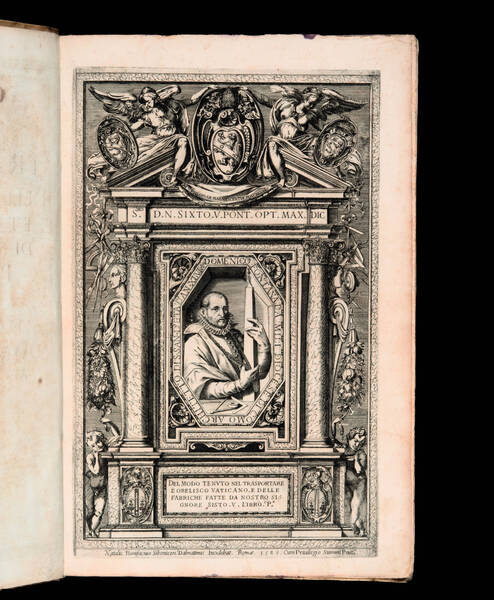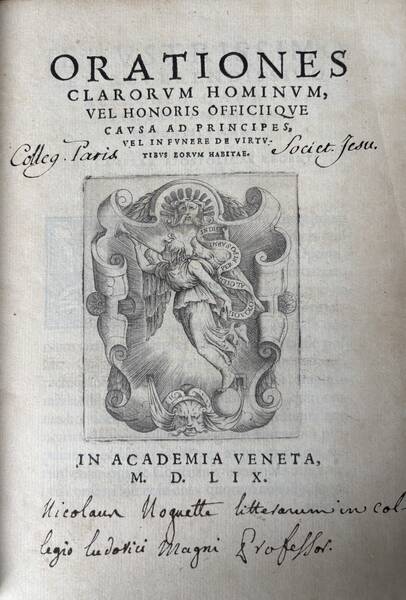TODI da, Jacopone. Laude.
Venice, Benali., 1514.Octavo (190 x 125 mm), [8], 128 leaves, with two woodcuts in the text, Saint Francis receiving the stigmata, and Christ preaching, and one historiated initials. Small marginal restoration in the blank marging of last three leaves but a very good copy bound by Cape in red morocco, covers ruled in blind with central gilt arabesque and gilt floral tools at each corner, spine in compartments with gilt tools, gilt edges.
Rare edition of da Todi's seminal work of Italian literature Laude - a compilation of 133 religious poems and spiritual canticles in the vernacular Umbrian dialect. The poetic laude were of religious devotional origin, usually consisting of exhortations to a moral life or of events in the lives of Christ and the saints. Common from the 13th to the 16th century in Italy, they were song during clerical celebrations, usually recited by religious confraternities such as the Franciscan friars. The first lauda in Italian was St. Francis' Cantico delle creature, one of the first works of Italian literature. Da Todi's canticles are “faithful mirrors of their writer's mind. Through them we come at last to some knowledge of his strange vehement nature: this vigorous missionary and subtle philosopher: this poet, by turns crude satirist, ardent lover, and profound contemplative, who can sink to the level of the popular hymnal and rise above that of St. John of the Cross.” (Underhill, p.10)
His poetry condemns the corruption of the Church, paints a vivid image of Jacopone's ascetic life, and provides a window into his mystical contemplations. The work includes two woodcuts, the first depicting St Francis of Assisi receiving the stigmata from a six-winged angel on a cross, and the second woodcut of Jesus preaching to a crowd.
Despite having lived an incredible life, the first half of the author's life is shrouded in myth: Jacopone da Todi (c. 1230-1306) was born to the noble Benedetti family and was a man of secular, “strong passions, wide cultivation and fastidious tastes” (Underhill, p.4) until his middle age, having studied in Bologna and pursued a successful career in law. He experienced a sudden shift into an ascetic life after the accidental death of his wife in 1268. This terrible blow led Jacopone to abandon his profession and withdraw from his opulent life in order to become a travelling pilgrim for ten years. Seen as an eccentric figure, he was said to have become mad from the love of God and made a fool of himself in public. When Jacopone became a member of the Franciscan order in 1278, he wrote violent satirical verse against Pope Boniface VIII and signed a manifesto declaring Boniface's election invalid. He faced excommunication and imprisonment as punishment for his actions, and many of his laudi spirituali were written during this period, being vivid outpourings of his state of mind, ranging from bitter anger to mystical ecstasy. After the death of Boniface in 1303, Jacopone was released by the new pope, Benedict XI. He eventually became a hermit in the hills of Collazzone, where he died in 1306. Hundreds of manuscripts of his poems survived, and were first printed in Florence in 1490.
“Three types of mind should find pleasure in da Todi's work and personality. First, those interested in Christian mysticism; for he is among the most profound and individual of the thirteenth-century mystics. Next, lovers of poetry; who, even though they may not sympathise with his religious attitude, cannot fail to admire the magnificent poems in which it is expressed [...] of spiritual passion the most beautiful lyrics of his Tuscan and Bolognese contemporaries. Last, those who care for the Italy of St. Francis and his descendants [...] may be attracted by the human and tempestuous story of this man who was a friend of the heroes of the Fioretti, and who suffered in the interests of those ideals which they represent.”(Underhill, v)
Oliger, L. Jacopone da Todi, 1910. Underhill, E. Jacopone da Todi, Poet and Mystic, 1919.
USTC 836112; Adams v.1 p.579 54; BM STC Italian p.82 83.d.31.; Brunet 485.
Other Books
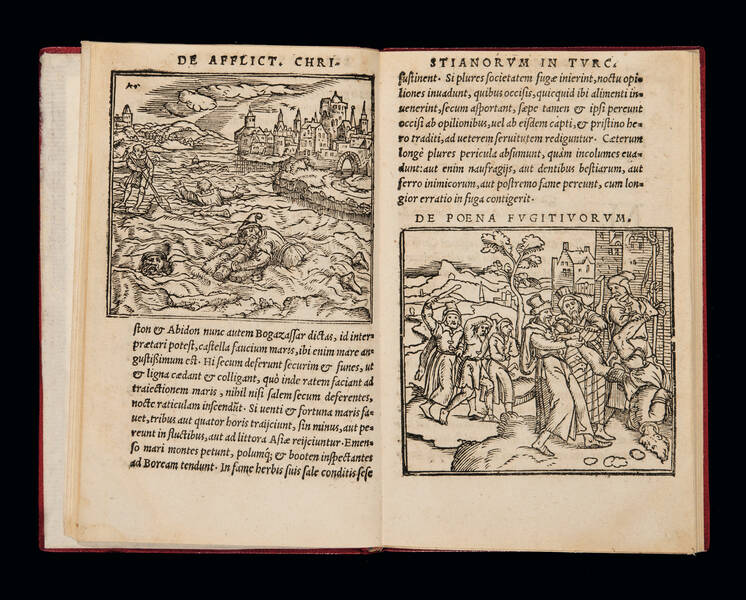
GEORGEVIC, Bartolomej
De afflictione, tam captivorum quam etiam sub Turcae tributo viventium christianorum.
SOLD OUT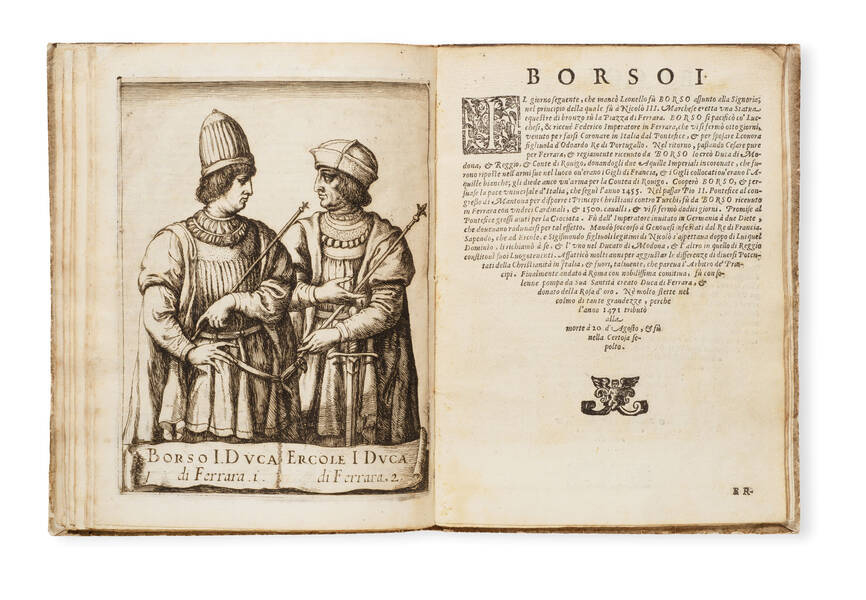
CARIOLA, Antonio; DOINO, Caterino
Ritratti de ser.mi Principi D’Este sig.ri di Ferrara con l’aggionta de loro fatti più memorabili ridotti in sommario.
SOLD OUT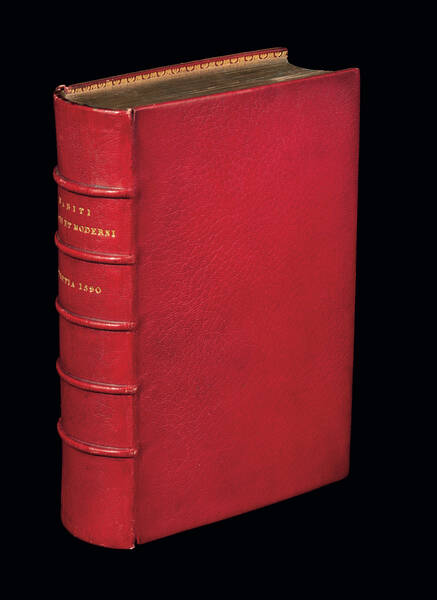
VECELLIO, Cesare
Degli Habiti Antichi, et Moderni di Diverse Parti del Mondo Libri due, fatti da Cesare Vecellio, & con Discorsi da Lui Dichiarati.
SOLD OUT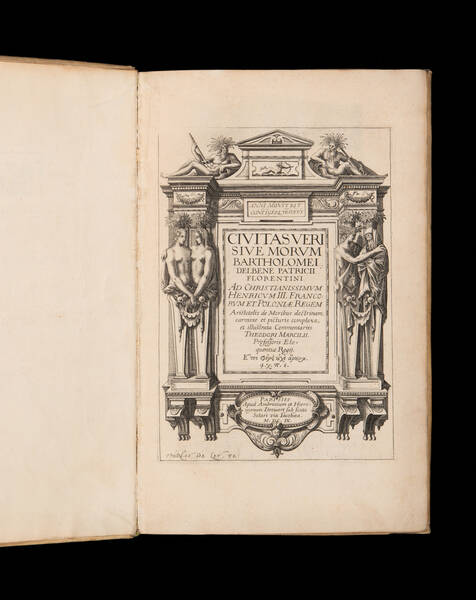
DEL BENE, Bartolommeo
Civitas veri sive morum ... illustrata commentariis Theodori Marcilii.
€ 19.000![[De Architectura libri decem], M. Vitruuius per Iocundum solito castigatior factus cum figuris et tabula vt iam legi et intelligi possit. [De Architectura libri decem], M. Vitruuius per Iocundum solito castigatior factus cum figuris et tabula vt iam legi et intelligi possit.](https://www.medariquier.com/typo3temp/pics/b57e48f107.jpg)
VITRUVIUS POLLIO, Marcus
[De Architectura libri decem], M. Vitruuius per Iocundum solito castigatior factus cum figuris et tabula vt iam legi et intelligi possit.
SOLD OUT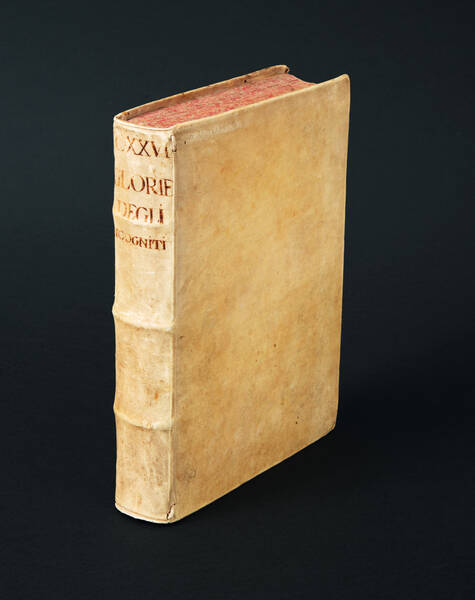
[BRUSONI, Girolamo]
Le glorie de gli Incogniti o vero gli huomini illustri dell'Accademia de' signori Incogniti di Venetia.
€ 8.000MEDA RIQUIER rare books ltd.
4 Bury Street St James's
SW1Y 6AB London
Phone +44 (0) 7770457377
info@medariquier.com
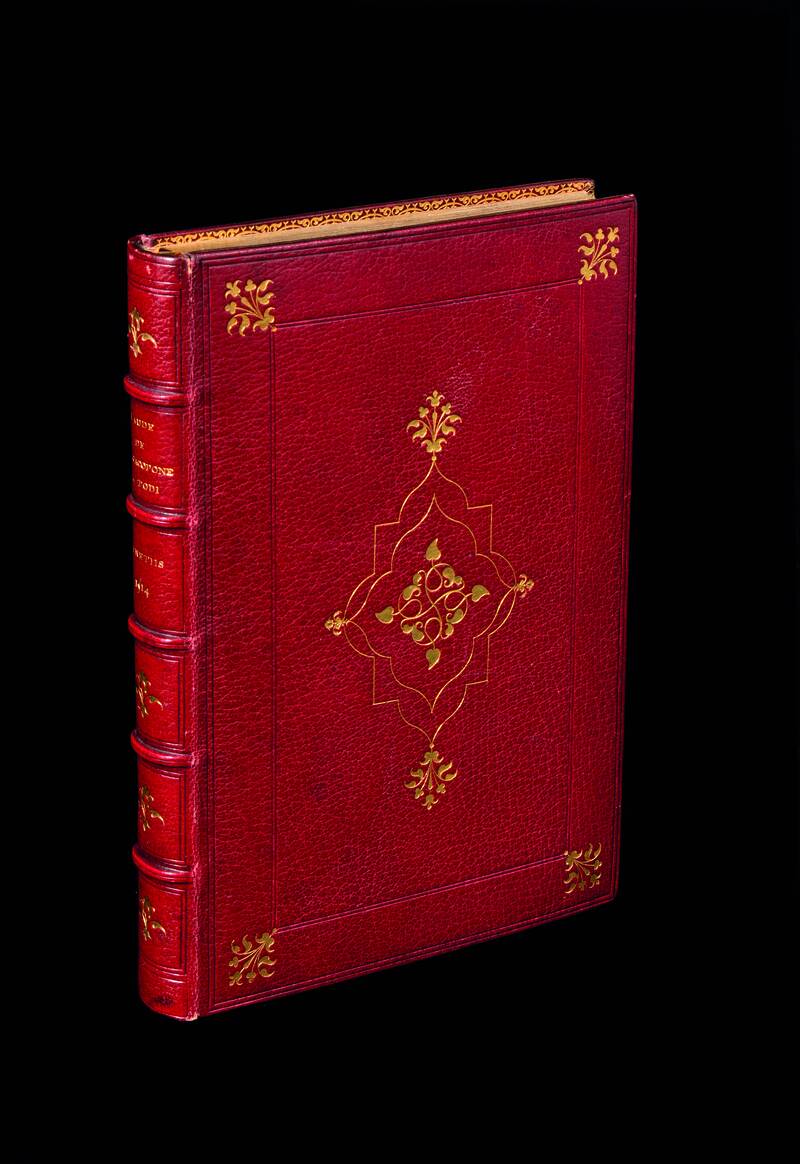
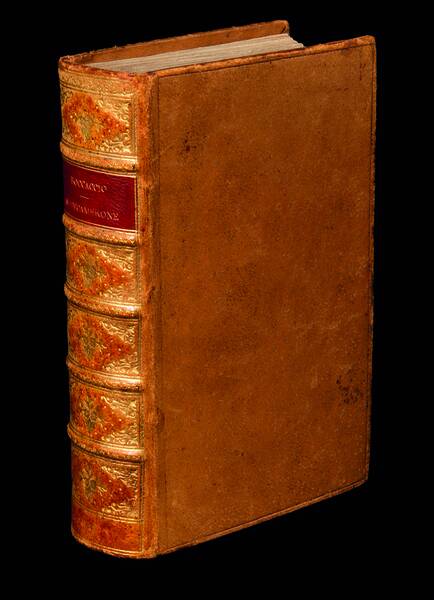
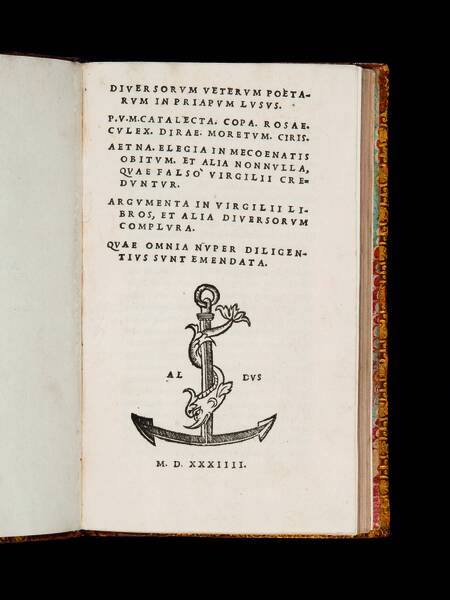
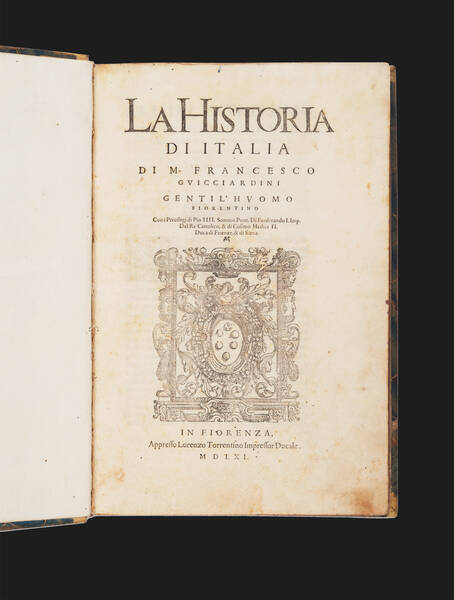

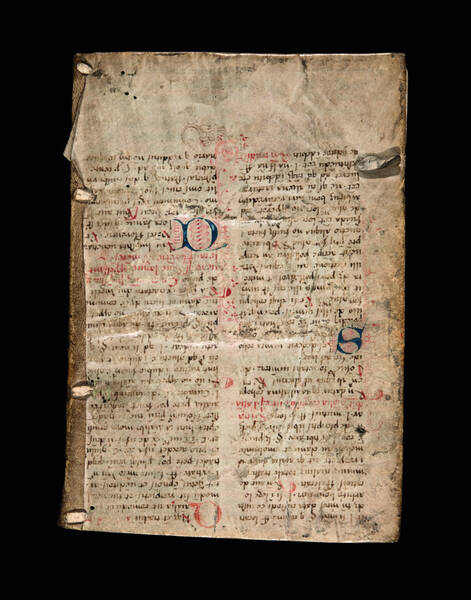
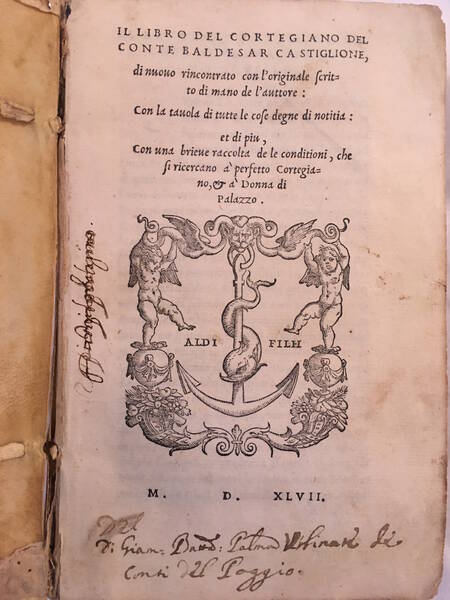
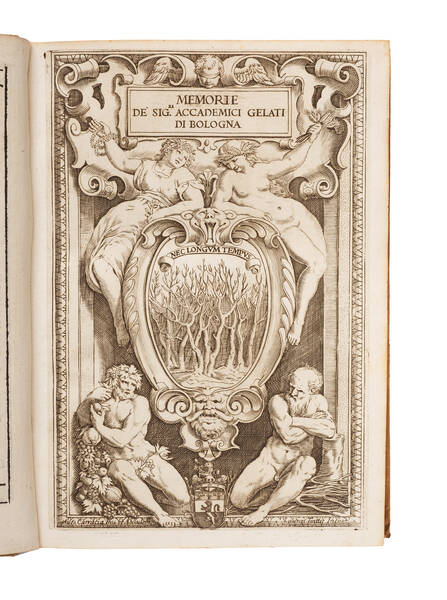

![[Life of the Virgin Mary] [Life of the Virgin Mary]](https://www.medariquier.com/typo3temp/pics/cbb0f7a08f.jpeg)
